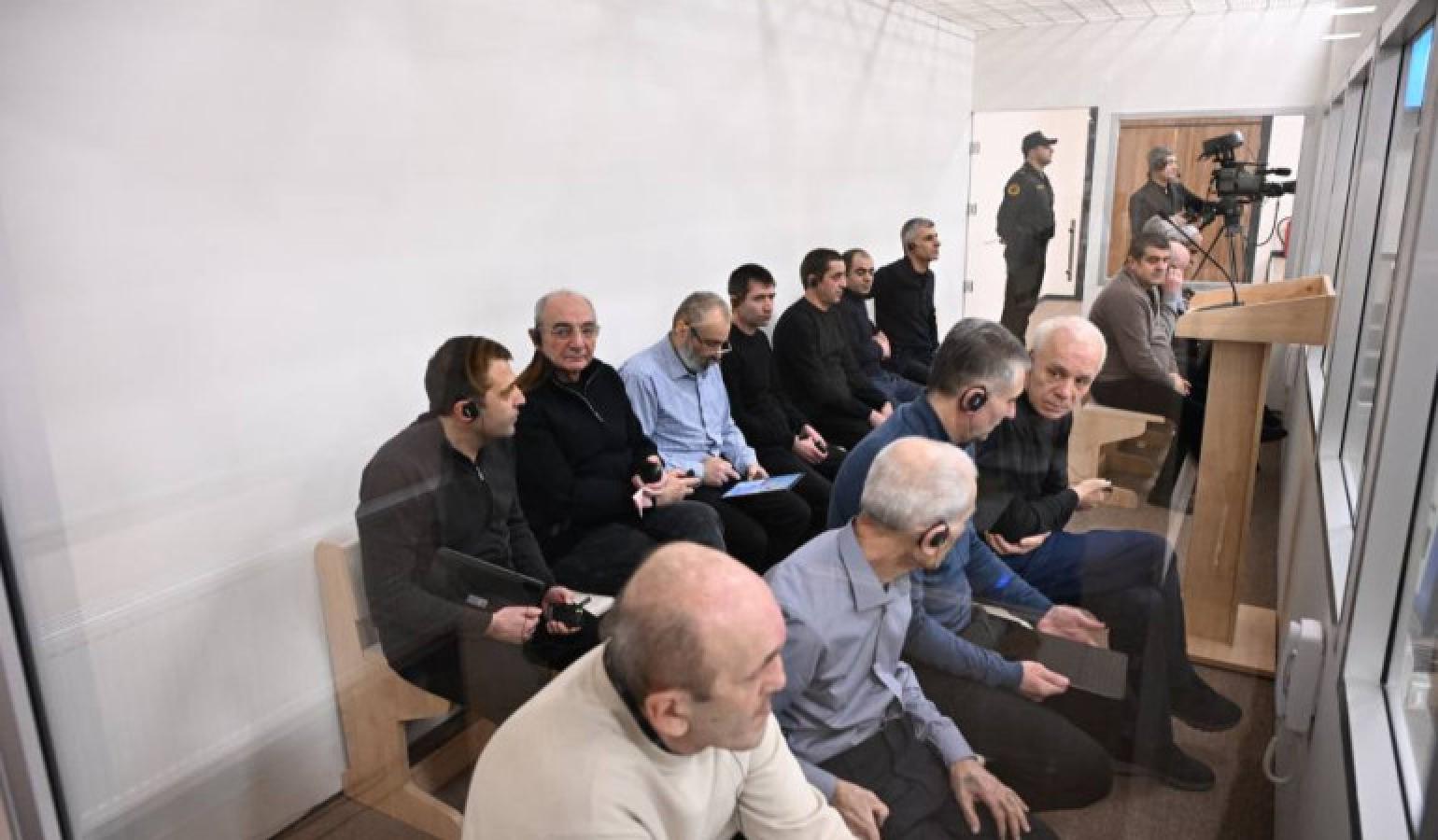
The ongoing trials of Armenian hostages in Baku remain inaccessible to international independent observers, experts, and diplomatic representatives. Even those wishing to attend the hearings face persecution. Regarding this issue, Siranush Sahakyan, head of the "Center for International and Comparative Law" and an expert in international law, answered "Azatutyun's" questions, without revealing who or which organizations' members have received rejections and faced persecution from Baku. The human rights defender refrained from publishing names so as to not target them any further, while not entirely ruling out possible future disclosures.
"They were interrogated, followed throughout their movements, and attempts were made to intimidate the person with various forceful and threatening methods. Here, not only are ordinary prohibitions presented, but also steps resembling persecution are being taken against all individuals who wish to be present at the announced open trials," Sahakyan said in an interview with "Azatutyun," adding that people do not have the opportunity to be there of their own volition; they are registered in advance, their names are agreed upon by Azerbaijani state bodies, the information received by individuals is entirely controlled by the state, and independent third parties are deprived of the opportunity to attend the trials.
During the recent trials in Baku's military court, the names of former leaders of Artsakh and Armenia are regularly emphasized. Individuals presented as witnesses accuse Armenians of murders, targeting civilians, and displacement. The only media outlet covering the trial, "AzerTag," publishes fragmented information from the hearings. According to Sahakyan, this proves that Baku is trying to present the edited, fabricated trial as the semblance of reality.
"There is a large time gap; for example, the trials are not covered directly, but the materials are processed for one or two days, after which a new outflow occurs with the permission of the state. And we had direct communication in the cases of both Ruben Vardanyan and Babayan, through their families, to the effect that their thoughts are being distorted, and the statements made during the trial are presented to the public in an incomplete and inaccurate manner. This, in my assessment, is a certain manifestation of Azerbaijan's falsification policy," emphasized Siranush Sahakyan.
Ruben Vardanyan, who served as the State Minister of Artsakh for only three and a half months and never coordinated the military sphere, is accused under more than forty articles, ranging from terrorism and organizing war to mass killings. Recently, Vardanyan's son appealed to the President of the United States, Donald Trump, requesting the release of his father and the other 22 Armenian prisoners of war who have been imprisoned in Baku for more than a year and a half. The former official faces up to life imprisonment in Baku.
The international law expert says that despite the change in US policy, it should not be ruled out that Washington can influence Baku on the issue of releasing prisoners of war. "The American side has sufficient resources, and we have understood the effectiveness of these resources with a specific example; for instance, in 2022, when aggression occurred against the sovereign territory of Armenia, and more than three dozen Armenian servicemen were captured, thanks to American efforts, their release was possible within a two-week period. This was an unprecedented indicator, and it shows that in American-Azerbaijani-Turkish relations, there are vital components to which prioritizing can lead to the resolution of other types of issues," says Siranush Sahakyan. Earlier, the then-National Security Advisor to the US President had called on Baku to release the Armenian prisoners.